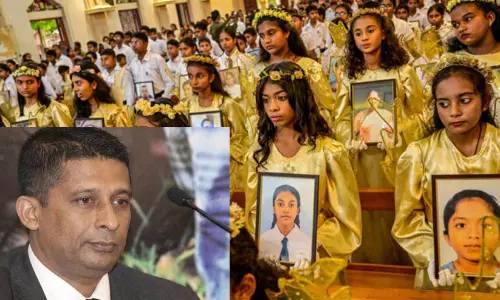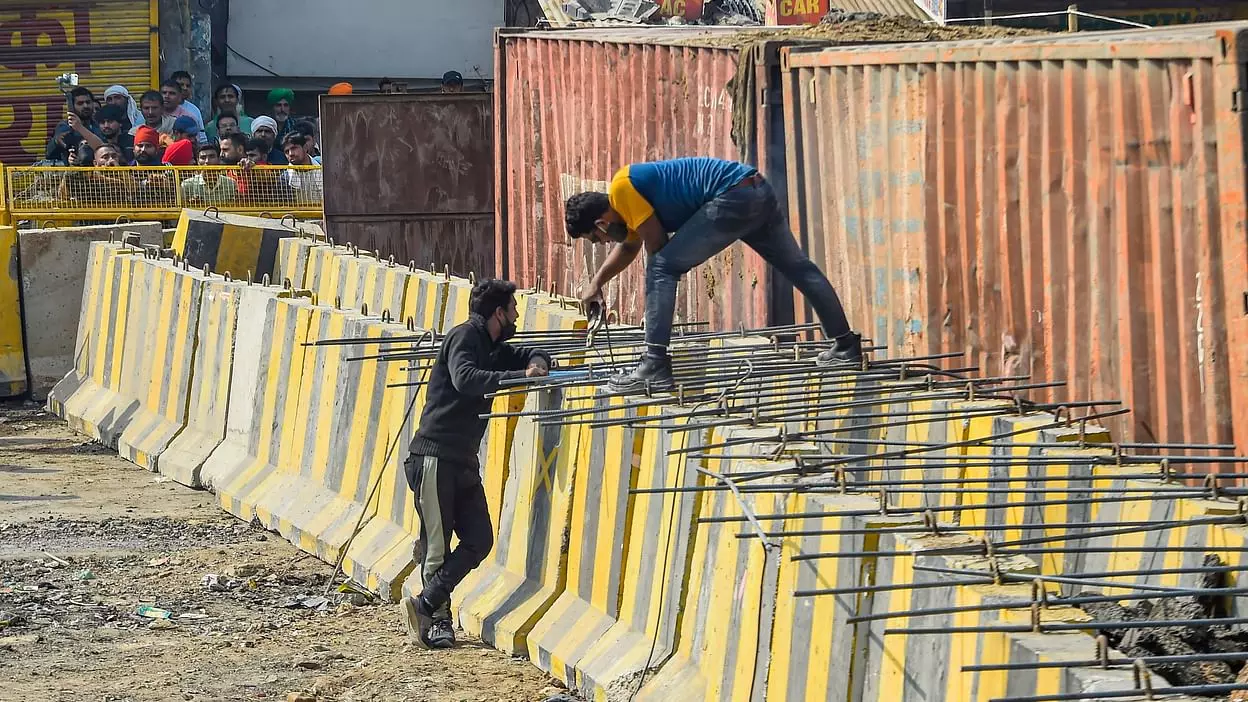
The battle-readiness against farmers
text_fieldsDrinking water supply cut, power supply disconnected, internet blocked, trains diverted, the entire stretch of Delhi's borders with Ghazipur and Singhu sealed off with tunnels, concrete barricades and barbed fences, security forces deployed with full arms – this is not a picture of guarding the country against enemy forces trying to invade Indian territory through the border. This is the scene of readiness of the central government to take on the legitimate protests of the farmer population – who fill the country's granaries and sate our hunger. The national capital and other Indian cities have in the past been scenes of more tumultous strikes and agitations. But it is for the first time that the country witnesses the inhuman spectacle of barricades made of barbed fences and concrete walls reminiscent of Israel resisting freedom fighters.
The repeal of the three farm laws pushed through parliament by the central government unilaterally, without adequate debate or any consultations with parties concerned, has become the life and death issue of India's farmers. They are fully convinced of how detrimental to them the new laws are, which will further weaken the already sick farming sector and push thousands of farmers into starvation and suicide. It is for this very reason that despite the looming threat of Covid, the farmers, braving the coldest nights of the decade, are pitched in protest at the capital's borders. They refuse to toe any political party's line, and do not have any major demand other than to repeal the three laws.
However, the intransigence borne out of false pride and the servility to crony capitalists prevent the Centre from any rethinking about the laws. The government is turning its back on open discussions out of fear of corporate entities who are all geared to sow the seeds for contract farming. Indian corporates and the government have been engaged in building bridges for the entry of firms producing genetically modified (GM) crops , fertilisers and deadly pesticides. They tried diverse ploys to crush the strike, and create schisms among the farmer organisations, spread canard about them being extremists and secessionists, and tried to infiltrate the smart boys of the police among the rank and file of the farmers in an attempt to derail the protests. The establishment charged cases against thousands of them, let loose sangh parivar goons under the guise of local residents and tried to suppress the strikers. If the farmers are still unyielding and assert that they will not withdraw, it is solely on the conviction that the consequences of the controversial laws are more consequential than the repressive measures. A journalist who revealed that the people who attacked the protesters were RSS men, was arrested and got bail only thanks to the intervention of the court. But concerted efforts are continuing to silence the media and journalists who take a stance against the attacks and in favour of the protesting farmers. There is a threat even on Twitter, which allowed the reopening of the accounts of media entities including the 'Caravan' magazine which were blocked at the instance of the government.
With the outside world getting a view of the picture of barbed fences and suppressive moves, there is an undeclared ban for media persons. But of what use? Despite the ardent efforts by the pro-government/corporate media to cover up the protests, the world media have started carrying reports about the blatant human rights violations. Eminent figures right from Greta Thunberg, Rihana and Meena Harris to senior political thinkers and members of foreign parliaments have been expressing solidarity with the farmers.
More than half of those in the forefront of the current farmer protests are those who had given strong support to the BJP in the last two general elections and in the assembly elections of Uttar Pradesh and Haryana. It is after they refused to succumb to the laws - that would make them genuflect before corporates – that they have been labelled as extremists and enemies of the country. The Jat farmers of UP have started admitting that the greatest blunder by their generation was their support to the BJP. Asserting that will not step back out of fear of barbed fences and repression, they remind everyone that those obstacles are insignificant before farmer power. They have declared that on Saturday, they will block streets not only in Singhu and Ghazipur, but all over the country. The progeny of the farmers who had fought and given their lives against the exploitation of feudal-monopoly capitalists and British government atrocities, have apparently vowed they will leave the scene either by winning or dying. It is for the people of India to make their stand clear whether they are with the farmers who sow seeds in the farm to supply food to the people or with those who spread hatred in the country.























